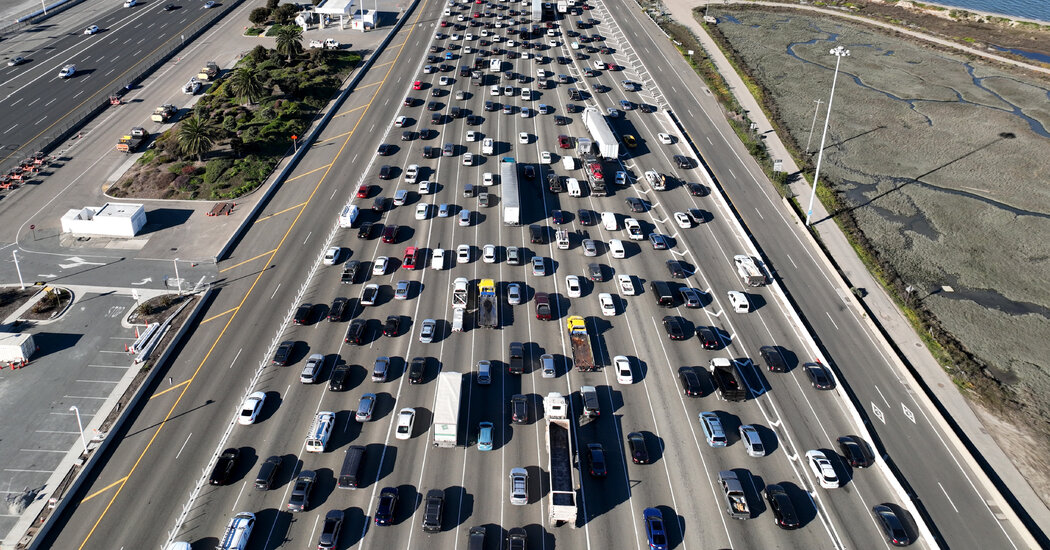

“Automakers are committed to working cooperatively and constructively with California and other states to ensure vehicles are efficient, clean, and affordable for all,” said a statement from John Bozzella, president of the Alliance for Automotive Innovation, which lobbies on behalf of more than a dozen automakers, including Ford, General Motors, Stellantis, Toyota and Volvo. “Collaboration between governments at all levels will be essential to achieving our shared goals for a cleaner transportation future that benefits all communities and enhances U.S. economic competitiveness.”
During the Trump administration, five auto companies — Ford, Honda, BMW, Volkswagen and Volvo — signed a deal with California in which they voluntarily committed to continue to follow a tighter emissions standard in the state, even though Mr. Trump had eliminated California’s authority to enforce it.
Mr. Trump’s 2019 decision to revoke California’s ability to set its own limits on tailpipe emissions stood as one of his biggest moves to raze climate change policies. The regulation of vehicles is central to combating climate change: Transportation is the largest single source of greenhouse gases generated by the United States, representing 29 percent of the nation’s total emissions.
A recent report by the International Energy Agency found that nations would have to end the sale of new gasoline-powered cars by 2035 to keep average global temperatures from increasing 1.5 Celsius, compared with levels during the Industrial Revolution. That’s the threshold beyond which scientists say Earth faces irreversible damage. The planet has already warmed an average of about 1.1 degrees Celsius since the late 1800s.
Under the 1970 Clean Air Act, Congress gave California authority to set tailpipe standards tougher than the federal limits in order to address its problem with smog.
In 2009, President Barack Obama set federal auto emissions standards based on the California rule, requiring passenger vehicles to reach an average mileage of 51 miles per gallon by 2025, up from roughly 38 miles per gallon at the time.
Those rules put the auto industry on a path to aggressively ramping up electric vehicle production by 2025, until Mr. Trump revoked them in 2020. He wrote on Twitter, “The Trump administration is revoking California’s Federal Waiver on emissions in order to produce far less expensive cars for the consumer, while at the same time making the cars substantially SAFER.” He said the change would lead to increased auto production and new “JOBS, JOBS, JOBS,” and claimed that the newer cars would be “extremely environmentally friendly.”
24World Media does not take any responsibility of the information you see on this page. The content this page contains is from independent third-party content provider. If you have any concerns regarding the content, please free to write us here: contact@24worldmedia.com

Common Mistakes When Using Athletic Field Tarps

High-Performance Diesel Truck Upgrades You Should Consider

Warehouse Optimization Tips To Improve Performance

Fire Hazards in Daily Life: The Most Common Ignition Sources

Yellowstone’s Wolves: A Debate Over Their Role in the Park’s Ecosystem

Earth Day 2024: A Look at 3 Places Adapting Quickly to Fight Climate Change

Millions of Girls in Africa Will Miss HPV Shots After Merck Production Problem

This Lava Tube in Saudi Arabia Has Been a Human Refuge for 7,000 Years

Four Wild Ways to Save the Koala (That Just Might Work)

National Academy Asks Court to Strip Sackler Name From Endowment

Ways Industrial Copper Helps Energy Production

The Ins and Out of Industrial Conveyor Belts